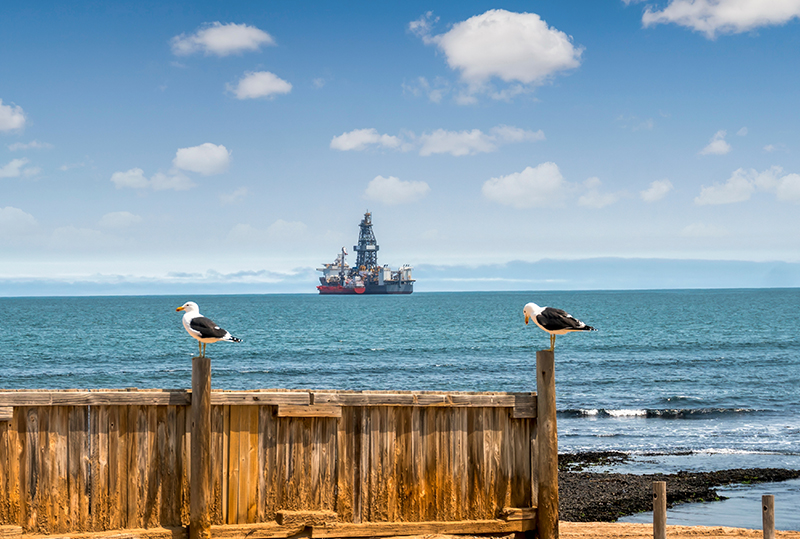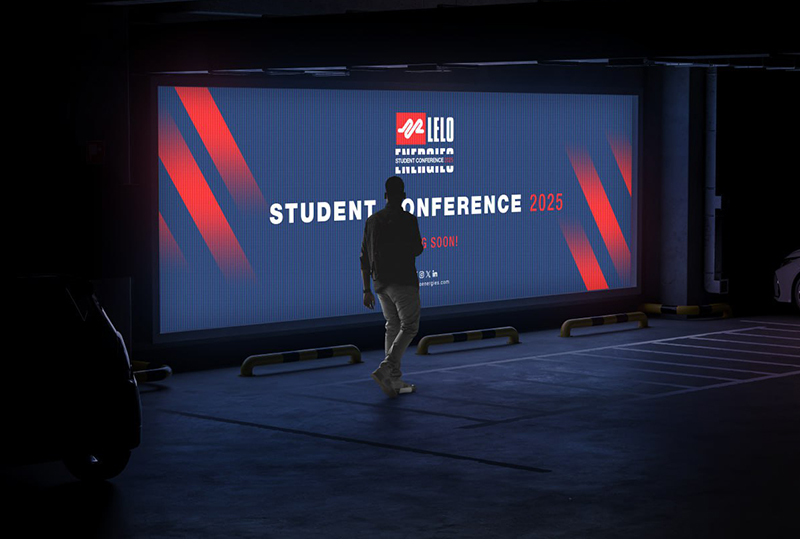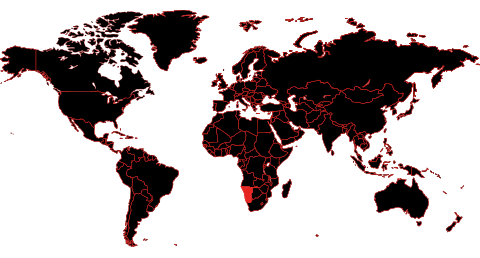Voices from Lüderitz
Balancing Oil Exploration with Community Livelihoods
Namibia’s expanding oil and gas sector is unlocking significant economic potential, particularly for coastal towns like Lüderitz. However, with exploration activities accelerating, local fishing communities have raised concerns over potential disruptions to their livelihoods. The key challenge is to balance economic development with environmental sustainability, ensuring that both industries can coexist without negatively impacting one another.
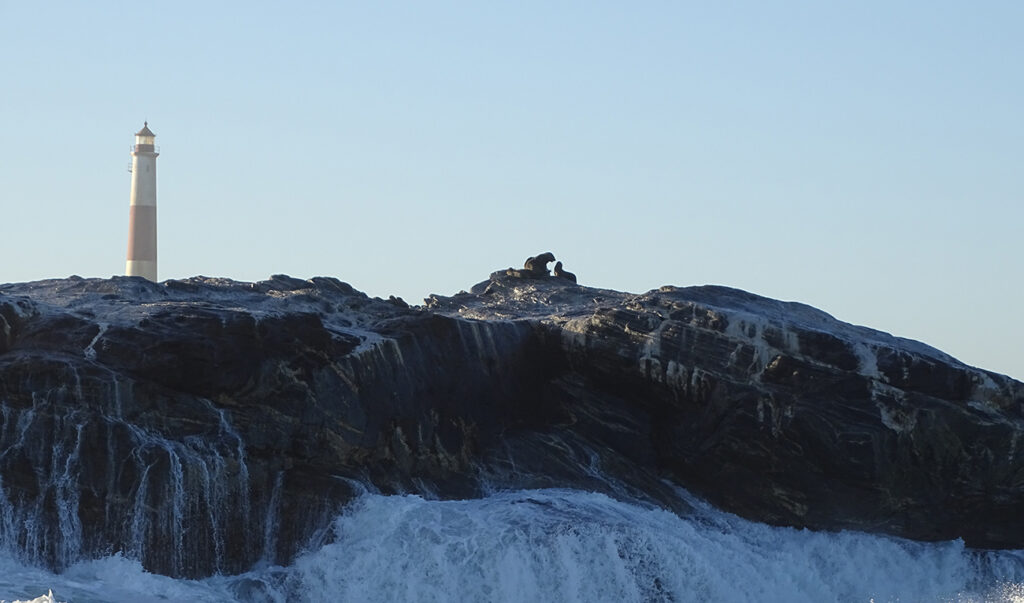
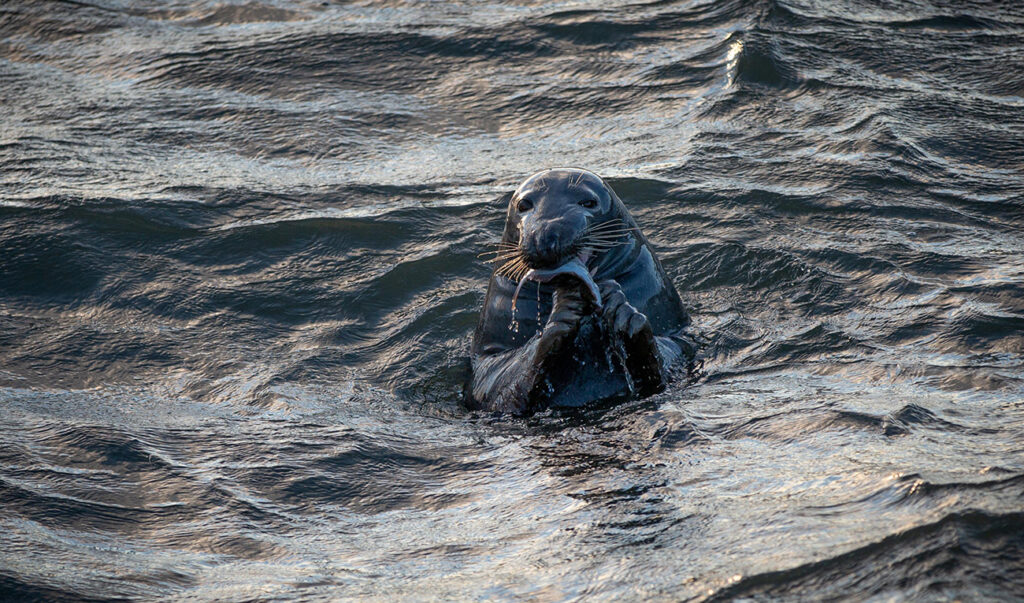
Lüderitz has historically been a thriving fishing hub, supporting thousands of families through commercial and small-scale fishing. The discovery of major offshore oil reserves introduces new complexities, as stakeholders weigh the benefits of energy investment against the potential risks to marine ecosystems and community livelihoods.
Key concerns from the fishing sector include:
• Impact on Marine Ecosystems – Seismic surveys and drilling activities may disrupt fish stocks and migration patterns.
• Restricted Fishing Areas – Expanding offshore infrastructure could limit access to traditional fishing zones.
• Environmental Risks – Potential oil spills or industrial pollution could threaten Namibia’s fishing waters and coastal biodiversity.
Fishing industry representatives have emphasized the need for safeguards to ensure that oil expansion does not come at the cost of local economic stability.
Finding a Path for Coexistence
Rather than a trade-off, oil exploration and fishing can coexist through proactive management and strategic collaboration. Ensuring sustainable development requires the involvement of government, industry leaders, and local communities in shaping policies that protect both economic sectors.
Potential solutions include:
1. Stronger Environmental Regulations & Monitoring
• Conducting rigorous environmental impact assessments (EIAs) before offshore drilling projects commence.
• Enforcing marine conservation measures to safeguard biodiversity and maintain fishing resources.
2. Clear Industry Coordination & Designated Zones
• Establishing separate operational zones for fishing and oil exploration to prevent direct conflicts.
• Setting up community liaison committees to facilitate ongoing discussions between fishermen and energy companies.
3. Economic Diversification & Skills Development
• Encouraging investment in alternative marine-based industries such as aquaculture and conservation.
• Providing training opportunities for local workers to transition into oil and gas industry roles, creating employment diversification.
These strategies can help Namibia harness its energy potential while maintaining the long-term viability of its fishing industry.
As Namibia’s oil and gas sector grows, preserving the economic and environmental integrity of Lüderitz’s fishing communities is crucial. The focus should be on collaborative decision-making, responsible environmental policies, and economic inclusivity. With proper planning and regulatory oversight, Namibia can ensure that its energy expansion supports both industrial growth and traditional livelihoods, fostering long-term national prosperity.
Lelo Energies’ Strategic Recommendations
As Namibia expands its offshore energy sector, Lelo Energies advocates for a balanced approach that safeguards local fishing communities while ensuring economic growth. Our recommendations are practical, globally tested, and industry-aligned to foster coexistence between oil exploration and traditional livelihoods.
To balance oil exploration with the livelihoods of Lüderitz’s fishing communities, Lelo Energies proposes:
1. Zoning & Coordination – Establish clear fishing and exploration zones and a joint advisory board for oversight.
2. Environmental Safeguards – Enforce impact assessments, spill prevention, and marine protection measures.
3. Fisheries & Energy Coexistence – Implement seasonal exploration windows and a community compensation fund.
4. Workforce & Economic Diversification – Reskill fishermen for energy sector jobs and invest in alternative industries like aquaculture.
5. Corporate Social Responsibility (CSR) – Mandate oil companies to reinvest in coastal conservation, infrastructure, and local development.
These strategies ensure sustainable growth, protect local industries, and promote responsible energy expansion.
View source version on
Namibian Ministry of Fisheries & Marine Resources: MFMR Namibia
Namibia’s National Petroleum Corporation (NAMCOR): NAMCOR
Earth Day 2025 – Our Power, Our Planet
“Our Power, Our Planet” — the theme of Earth Day 2025 — is not just a rallying cry for envir
Positioning Namibia’s Youth at the Center of Its Energy Future
Namibia stands at a pivotal moment in its national development, faced simultaneously with a signific
What Every Namibian Student and Entry-Level Professional Should Know About the Upstream Oil & Gas Sector
The upstream oil and gas industry in Namibia is no longer a theoretical possibility—it is a rapidl

